In the following code (in kotlin)
fun greet(){
print("Hello! ")
}
fun salute(){
print("Have a nice day ")
}
fun main(args: Array<String>){
//val todoList: List<()->Unit> = listOf(::greet,::salute)
val todoList: List<()->Unit> = listOf({greet()},{salute()})
for(task in todoList){
task()
}
}
What is the significance of using the first way that is now commented (Function references) against using the second way (just calling the functions in a lambda)
As far of results both print "Hello! Have a nice day"
